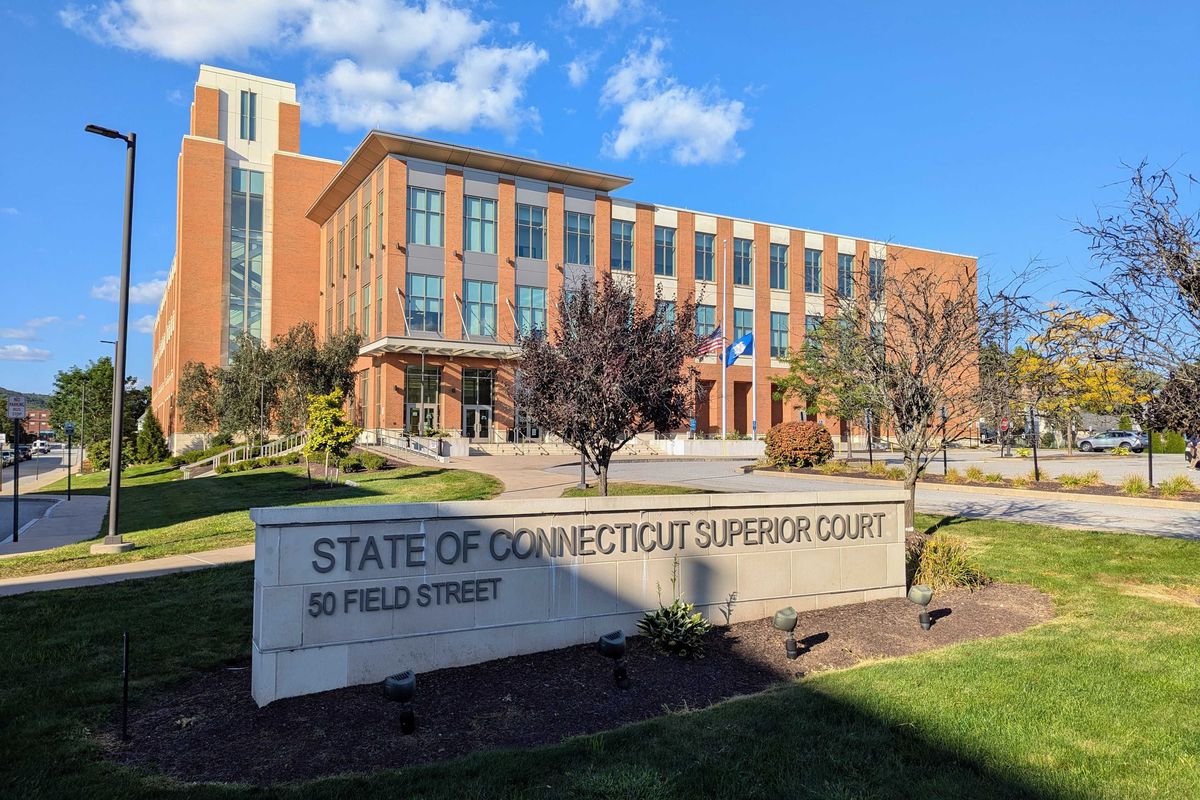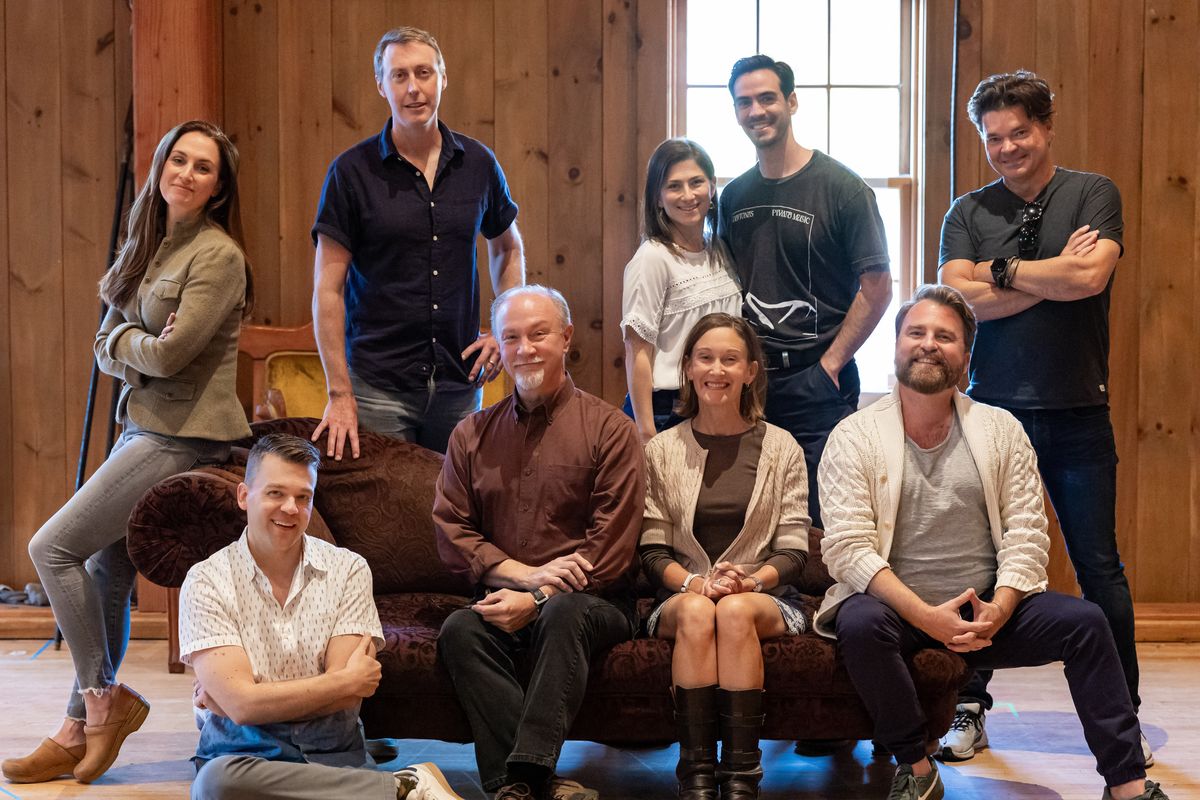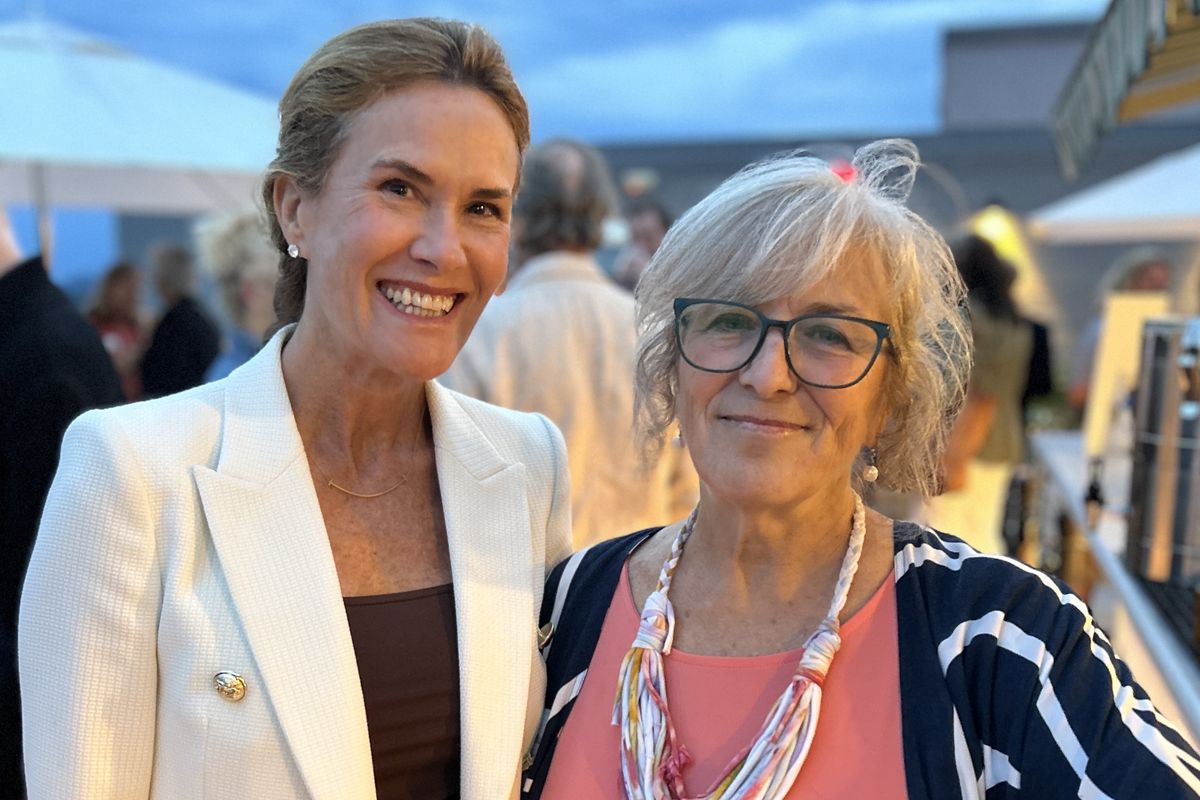Latest News
In the case of Jacquier vs. Camardi, Torrington Superior Court ruled that candidates must properly complete the required endorsement paperwork in order to be included on the municipal ballot, per Connecticut General Statute 9-391.
Photo by Riley Klein
NORTH CANAAN — Due to incomplete endorsement paperwork, Torrington Superior Court has ruled that two Democratic Town Committee nominees should not be included on North Canaan’s ballot in the upcoming Nov. 4 municipal election.
The case was initially brought on Sept. 5 by plaintiffs Jean Jacquier and Carol Overby against defendant Marilisa Camardi.
The plaintiffs requested to be included on the ballot despite failing to include the office they were running for on the endorsement slate that was filed by the DTC. The plaintiffs claimed they achieved substantial compliance with election laws because the accompanying State Elections Enforcement Commission paperwork was filed properly, even though the slate was not.
Upon review, Camardi, the acting Town Clerk in North Canaan, removed the two candidates from the ballot on advice from Secretary of the State Election Officer Heather Augeri. The SOTS office was alerted to the incomplete paperwork by First Selectmen Brian Ohler on Aug. 7.
An evidentiary hearing on Sept. 12 and subsequent arguments by attorneys on Sept. 19 led to the court’s decision.
Judge Ann E. Lynch filed her memorandum on Sept. 24 stating the plaintiffs failed to comply with Connecticut General Statute 9-391, which lays out candidate endorsement requirements.
Lynch’s decision acknowledges that other paperwork may have been filled out correctly, but that does not excuse the necessity to adhere to relevant election laws, she explains:
“The plaintiffs did not substantially comply with Connecticut General Statute 9-391 by filling out forms that pertain to completely different statutory requirements relating to campaign financing.
“This court cannot ignore the mandatory requirements of §9-391. Accordingly, this court finds that Camardi properly determined that Jacquier and Overby’s names cannot appear on the ballot for the November 2025 election.”
After the ruling, plaintiff attorney John Kennelly said, “Obviously we disagree with the judge’s interpretation of the law and exception to strict compliance with the statute. We believe that the judge’s ruling denies the people of North Canaan an opportunity to elect dedicated public servants. We are most disappointed with the actions of the First Selectman Ohler in that he knew of this potential issue weeks before he reported it to the Secretary of the State’s office, and he did so only after there was no chance for my client to fix the mistake. That type of partisan politics is a disservice to the citizens of North Canaan.”
Ohler responded. “This lawsuit does not pertain to me nor my position as North Canaan’s First Selectman.” He added, “I will continue to lead by example, as I have always done, insisting that legal counsel opine on all matters that involve the actions of our elected officials. That is the oath that I’ve taken and I will remain steadfast in my pledge to maintain the highest legal, moral, and ethical standards, while ceasing to ever partake in the mudslinging and rhetoric that I’ve been a constant target of over the past 20 months.”
Kennelly said his clients had not yet decided if they will appeal the court’s decision. The plaintiffs have up to 10 days after the ruling to file an appeal.
Election info
Jean Jacquier was nominated to run for Town Clerk by the DTC. Per the court ruling, Jacquier will not appear as a Democrat candidate on the 2025 ballot.
The Republican nominee for Town Clerk is Krysti Segalla.
Marilisa Camardi, part-time Assistant Town Clerk, is not running for office.
Carol Overby was nominated to run for Board of Finance by the DTC. Per the court ruling, Overby will not appear as a Democrat candidate on the 2025 ballot.
The other Democrat nominee for Board of Finance in 2025 is Emily Bottum.
The Republican nominee for Board of Finance is John Jacquier.
First Selectman Brian Ohler (R) is running for his second term.
Selectman Jesse Bunce was endorsed by the DTC to run for First Selectman in 2025.
In Connecticut, individuals can run as write-in candidates by registering with the SOTS office. The deadline to register as a write-in candidate for the 2025 municipal election is Monday, Oct. 6, at 4 p.m.
Keep ReadingShow less
Local talent takes the stage in Sharon Playhouse’s production of Agatha Christie’s ‘The Mousetrap’
Sep 24, 2025
Top row, left to right, Caroline Kinsolving, Christopher McLinden, Dana Domenick, Reid Sinclair and Director Hunter Foster. Bottom row, left to right, Will Nash Broyles, Dick Terhune, Sandy York and Ricky Oliver in Agatha Christie’s “The Mousetrap.”
Aly Morrissey
Opening on Sept. 26, Agatha Christie’s legendary whodunit “The Mousetrap” brings suspense and intrigue to the Sharon Playhouse stage, as the theater wraps up its 2025 Mainstage Season with a bold new take on the world’s longest-running play.
Running from Sept. 26 to Oct. 5, “The Mousetrap” marks another milestone for the award-winning regional theater, bringing together an ensemble of exceptional local talent under the direction of Broadway’s Hunter Foster, who also directed last season’s production of “Rock of Ages." With a career that spans stage and screen, Foster brings a fresh and suspense-filled staging to Christie’s classic.
The Playhouse’s casting includes Dana Domenick of Falls Village who leads the cast as Mollie Ralston, the newlywed innkeeper with a secret. Reid Sinclair of Norfolk plays Giles, her husband and partner in hospitality — and maybe in something more sinister. Will Nash Broyles from Lakeville plays the eccentric and enigmatic Christopher Wren, and Sandy York of Sharon will play the role of the imperious Mrs. Boyle. Dick Terhune (Litchfield), Caroline Kinsolving (Salisbury), Ricky Oliver (Pawling), and Christopher McLinden (also Lakeville) round out the cast as the play’s increasingly suspicious guests — and one very determined detective.
As always, Sharon Playhouse has gathered a top-tier creative team to match its cast. The Swader brothers (Christopher and Justin) return with their signature scenic designs, while Kathleen DeAngelis’s costumes and Bobbie Zlotnik’s wigs promise to anchor us firmly in postwar England, even as the plot spirals into timeless psychological suspense. Lighting by Wheeler Moon and sound design by Graham Stone will help turn the cozy theater into a stage crackling with tension.
If you’ve never seen “The Mousetrap,” here’s what you need to know: it’s the murder mystery that truly defined the genre. Premiering in London’s West End in 1952 and still running strong over 30,000 performances later, Christie’s ingenious puzzle unfolds in a snowbound manor house where everyone has something to hide, and no one is safe from suspicion. Its final twist is famously kept secret by audiences — a tradition of theatrical discretion that only deepens the sense of shared experience.
“The enduring success of ‘The Mousetrap’ lies in its suspense, yes, but also in its structure,” said the Playhouse’s Artistic Director Carl Andress. “It’s a masterclass in storytelling. And with Hunter Foster leading this incredible cast of local artists, we know our audiences are in for an evening of mystery, laughter, and yes, plenty of gasps.”
Tickets are available now at SharonPlayhouse.org.
Keep ReadingShow less
Mary Beth Lawlor, publisher/editor-in-chief of Litchfield Magazine, and supporter of Plein Air Litchfield, left,and Michele Murelli, Director of Plein Air Litchfield and Art Tripping, right.
Jennifer Almquist
For six days this autumn, Litchfield will welcome 33 acclaimed painters for the second year of Plein Air Litchfield (PAL), an arts festival produced by Art Tripping, a Litchfield nonprofit.
The public is invited to watch the artists at work while enjoying the beauty of early fall. The new Belden House & Mews hotel at 31 North St. in Litchfield will host PAL this year.
From Sept. 30 through Oct. 5, artists chosen from 100 entries around the country — representing diverse origins as far flung as Punjab, Berlin, and Peru — will set up their easels and spend the week recording the landscape, farms, historic buildings, and even restaurant interiors throughout the town. Artists such as Thomas Adkins, Yili Haruni, Katushka Millones, and Zufar Bikbov will participate.
“The French term plein air means ‘out of doors,’ referring to the practice of painting entire finished pictures in the open air. The plein air approach was pioneered by John Constable in Britain in the early 19th century,” according to The Tate Gallery in London.
Thursday, Oct. 2, is “Paint the Historic District Day,” when artists make paintings of early buildings.
Norfolk artist Sam Guindon will give a painting demonstration in the meadow by Tapping Reeve Law School at 82 South St. at 3 p.m. Thursday.
Nicole Carpenter, curator of the Litchfield Historical Society, will present “Landscape Visions: Artistic Depictions of Litchfield,” exploring the role artists play in documenting regional history, at 4 p.m. Thursday at the Oliver Wolcott Library at 160 South St. The talk is free, and all are welcome.
The public is also invited to the historic firehouse at Belden House at 6 p.m. for a free art show of the works created that day.
On Saturday, Oct. 4, Judge of Awards Eric Forstmann, a Litchfield County artist, will announce the winners at the Gala Art Show and Sale in the historic Firehouse property of Belden House & Mews, where all displayed artwork will be available for purchase.
Finally, on Sunday morning, Oct. 5,from 9 a.m. to noon, everyone is invited to a three-hour fun “Quick Paint” event. Open to artists of all levels, with additional prizes, the event will be held in the Tapping Reeve Meadow at 82 South St. Registration is from 8 to 9 a.m.
Art Tripping was founded in 2018 by Michele Murelli, whose mission is to create community art events and show how art enhances quality of life. Murelli and her team of volunteers have organized Plein Air Litchfield, 2025.
Visit the PAL website, www.pleinairlitchfield.com for information and to purchase tickets to the Gala Art Show and Sale.
Keep ReadingShow less
loading









